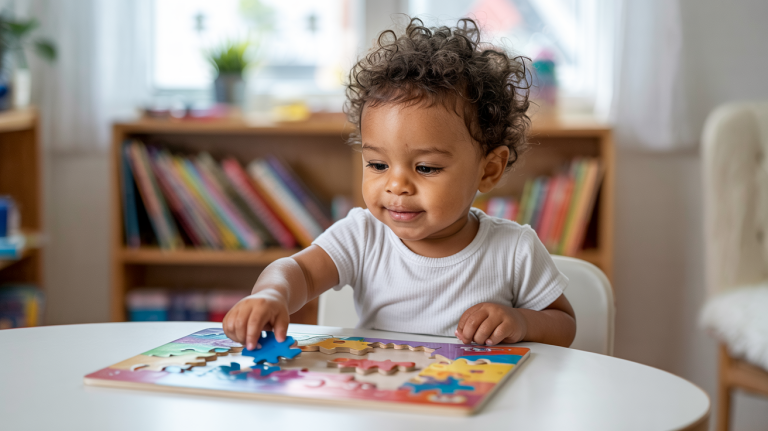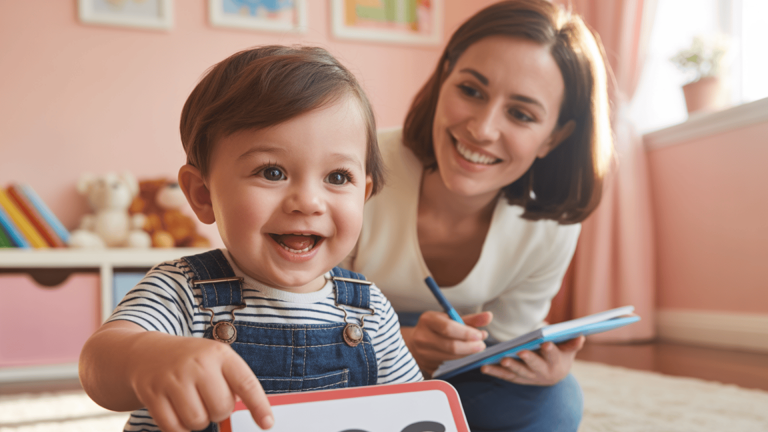6 Tips to Help Transition Your Baby from Separation Anxiety to Happy Daycare Life

As a cake smash photographer, I work with many one-year-olds. Their next big milestone is often starting daycare (we all think, “Oh, finally!”). As a parent, you’re likely caught between reclaiming your freedom and worrying about how your baby will react. In this blog, I’ll provide some tips to help make this transition smoother for your baby.
First, let’s explain what separation anxiety is and what it looks like.
Separation anxiety typically starts around eight months old and peaks between 12-16 months. A baby experiencing separation anxiety may cry or refuse to engage with strangers or become distressed when their regular caregiver leaves, even for a few minutes.
Separation anxiety is a common developmental milestone. It signifies that your baby is beginning to understand that “my caregiver is the most important person in the world, and I can’t live without them.” Over time, they will grow out of this phase as they develop a sense of independence.
Here Are Some Tips to Help with This Transition
1. More Social Interaction
I always tell my clients to prepare for their cake smash sessions by introducing their baby to strangers beforehand. The same goes for daycare teachers. Don’t let the daycare teacher be the first new person your baby encounters.
Invite friends and family over to your home, but also take your baby to public places like grocery stores. This exposure helps them get used to seeing and interacting with strangers in different environments. Start with places like grocery stores, then move to libraries, playgrounds, etc. The goal is to help your baby become accustomed to new faces and settings.
2. Don’t Rush When You Have to Leave for a Moment
If your baby cries when you leave the room for a few seconds, don’t rush back. As long as your baby is safe, take your time.
I have heard a lot of story of parents can’t even enjoy their bathroom time. Rushing can reinforce the idea that you should always be present, which is unrealistic. Taking your time helps your baby learn that it’s normal for you to leave sometimes, and that you will always come back.
3. Always Reconnect Mentally
When you return after being away, whether for a few seconds or a few hours, reconnect with your baby. Hug them, kiss them, and reassure them that you love them. Acknowledge their feelings if they cried, and let them know it’s okay to feel worried because you will always come back. Over time, this helps your baby feel secure even when you’re not around.
4. Practice with Trusted People
Once you’re followed the first few steps, let your baby stay with a trusted family member or friend for a few minutes. You can stay close by, perhaps just outside the door, to help your baby get used to being with someone else. This shows them that another caregiver can provide comfort and safety even when you’re not there. The practice will help your baby build trust with daycare teacher, so they know this is not a new experience to have.
5. Don’t Feel Guilty
Many parents feel guilty about leaving their baby at daycare. They feel a mix of relief at regaining some freedom and guilt for wanting a break.
Remember, in the past 1 year, 12 months, 365 days, you are trying to be someone’s parent, changing diapers, feeding, bathing, playing, teaching. Day and night shift. You are a full time student to learn your baby and a full time worker to take care your baby, and your sleep break into pieces. You absolutely deserve a good break, you also need a break. Additionally, experiencing separation anxiety is a natural part of your baby’s development. It’s their brain connecting with the outside world.
6. Give Your Baby Time
In my career, I’ve seen all types of one-year-olds from various cultural backgrounds. Some are outgoing with minimal anxiety; some of the baby need time to get used to me; some baby don’t need time get used to me, but half hour later all the sudden they started to cry like the world is
going to end now; some other baby cannot stop crying from the beginning even with all my effort.
I sent all of those clients with exactly the same prep guide. I’m pretty sure that all of the parents expect to have the good results. However, each baby is unique, influenced by their DNA, family culture, and numerous other factors beyond your control. Allow your baby the time they need to adjust. Don’t force them to conform to a particular timeline.
In Conclusion, I Want to Share My Personal Experience
I started daycare at age 2. While other kids took two weeks to adjust, it took me 2.5 years. I cried every morning for two years. Later, I went to boarding school from grade 6 to 12, and then I moved to Canada alone for university. I’ve spent my ‘whole life’ dealing with separation anxiety, and even now, I sometimes feel the same when I leave for work. But so what? I still have a fulfilling life.






